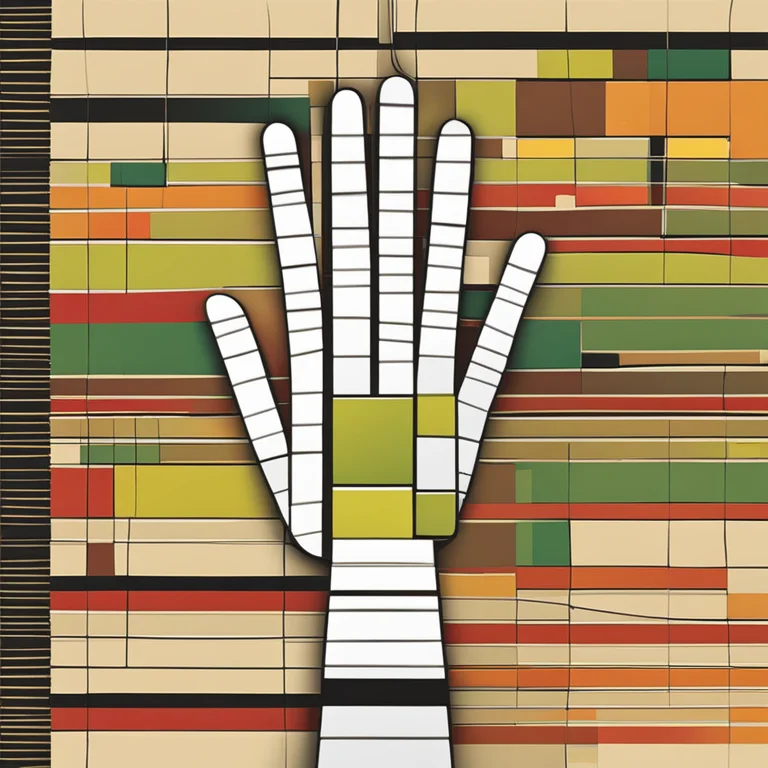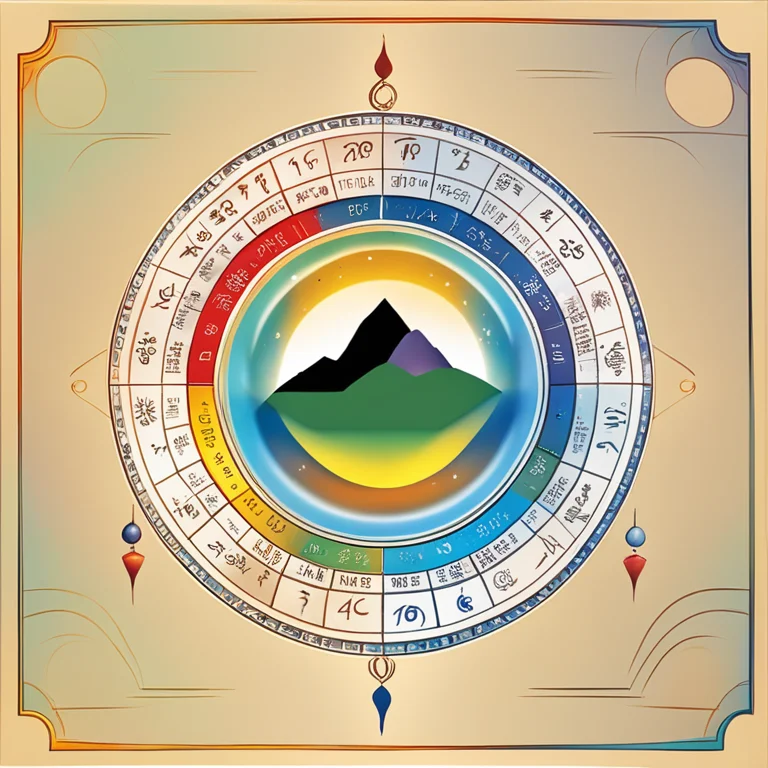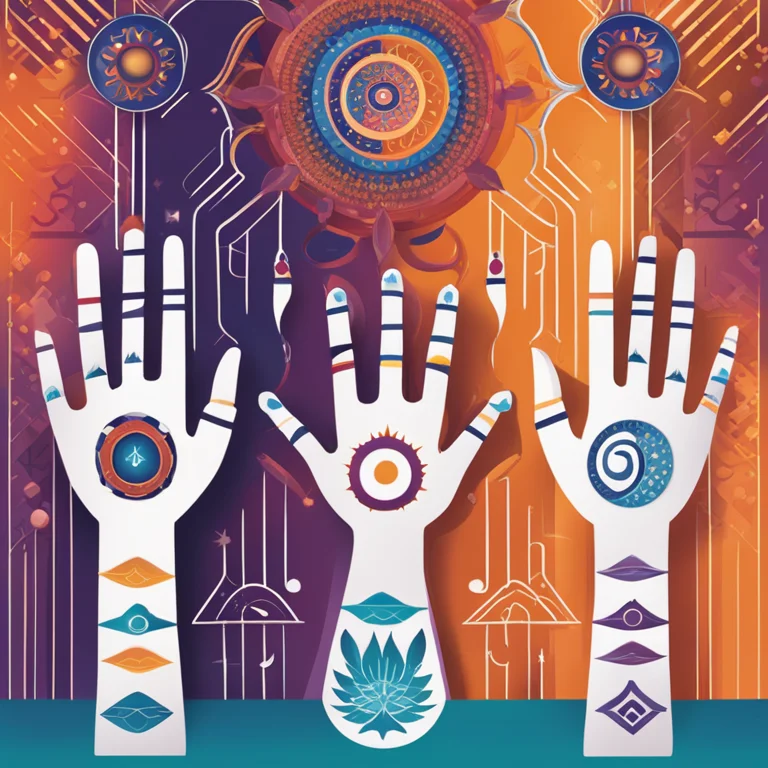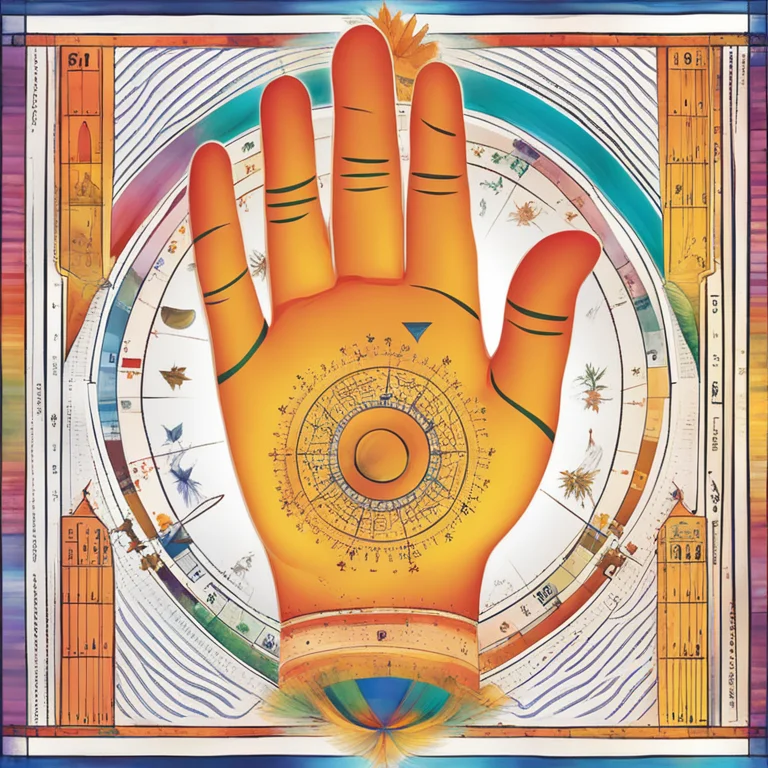
The Essentials of Vedic Palmistry
Delve into the ancient practice of Vedic Palmistry, an integral part of the Indian astrological tradition, and discover how it reveals an individual's journey.
article by Nora Pennington
The Roots of Vedic Palmistry
Palmistry has flourished in various cultures, but Vedic Palmistry, or Hast Jyotish, takes a distinctive approach that intertwines with the vast tapestry of Vedic knowledge. Rooted in the scriptures of Veda, this practice extends beyond mere predictions, moving towards understanding one's karmic path. As an essential part of Indian astrology, Vedic Palmistry has been revered for centuries, influencing countless individuals in their personal and spiritual journeys. This ancient wisdom tradition is believed to provide insights into one's character, life events, and even one's spiritual evolution.

Vedic Palmistry's Unique Approach
Unlike Western Palmistry, which often focuses on the psychological aspects of personality, Vedic Palmistry intricately combines astrological concepts with the study of the hands. It considers planetary influences on various parts of the palm and fingers, correlating them with an individual's astrological chart. Practitioners believe that the lines and mounts on one's hand echo the celestial bodies' alignment at their time of birth, offering a microcosmic reflection of the macrocosm. Each area of the hand is seen as a manifestation of different energies, thus offering a comprehensive view of life's facets.

Interpreting Life Through Lines
The lines on the palm are like the manuscript of one’s destiny. In Vedic Palmistry, the three major lines – the life line, head line, and heart line – are scrutinized for depths, curves, and intersections. However, it is the additional lines and markings, such as the fate line or the sun line, that offer a deeper context. Lines are said to change over time, reflecting one's free will and karmic patterns. Any transformations in these lines are considered indicative of personal growth, challenges, or shifts in life direction.

The Significance of Mounts
The mounts on one's palm hold significant importance as well. Each mount is associated with a planet and encapsulates particular characteristics and life themes. For instance, the Mount of Jupiter symbolizes ambition and leadership, while the Mount of Venus is related to love and sensuality. By analyzing the prominence and features of each mount, Vedic Palmistry aims to reveal an individual's strengths and propensities and how they might capitalize on them for success and fulfillment.

Practical Applications of Vedic Palmistry
Vedic Palmistry is not just a tool of divination; it’s a guide for self-understanding and improvement. Individuals turn to Vedic Palmistry for various reasons, from deciphering their career path and financial prospects to insights on love and marriage. Some consult palmists to identify their innate talents or to understand health-related concerns. The practice empowers individuals by offering them a glimpse of potential challenges and opportunities that may lie ahead, allowing them to make informed life choices.
The Future of Vedic Palmistry
With new-age spiritualism on the rise and a boost in Eastern philosophical interest, Vedic Palmistry is gaining momentum globally. In an era where the individual quest for purpose is pronounced, Vedic Palmistry serves as a vessel for self-discovery and cosmic awareness. Advances in technology may have modernized the way Vedic Palmistry is practiced, with digital imaging and analytics, but the core essence of this spiritual science remains untouched by time.
Published: 1/11/2024
Modified: 1/12/2024
More predictions
Come back here soon to learn more about yourself and your future


The Basics of Palm Reading: A Beginner's Guide
Discover the basics of palm reading in this comprehensive guide aimed at beginners interested in the ancient practice of palmistry.


The Secrets of the Jupiter Mount & Palmistry
Discover the significance of the Jupiter Mount in palm reading and how it reflects your leadership and ambition.


The Impact of the Jupiter Mount in Palmistry
Discover the impact of the Jupiter Mount on your life through palm reading. Learn about its meaning and significance in palmistry.